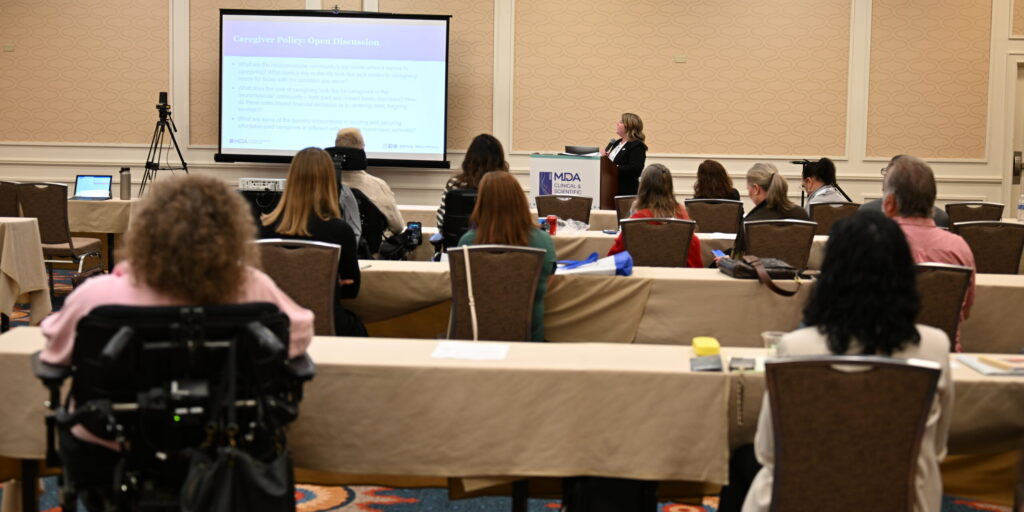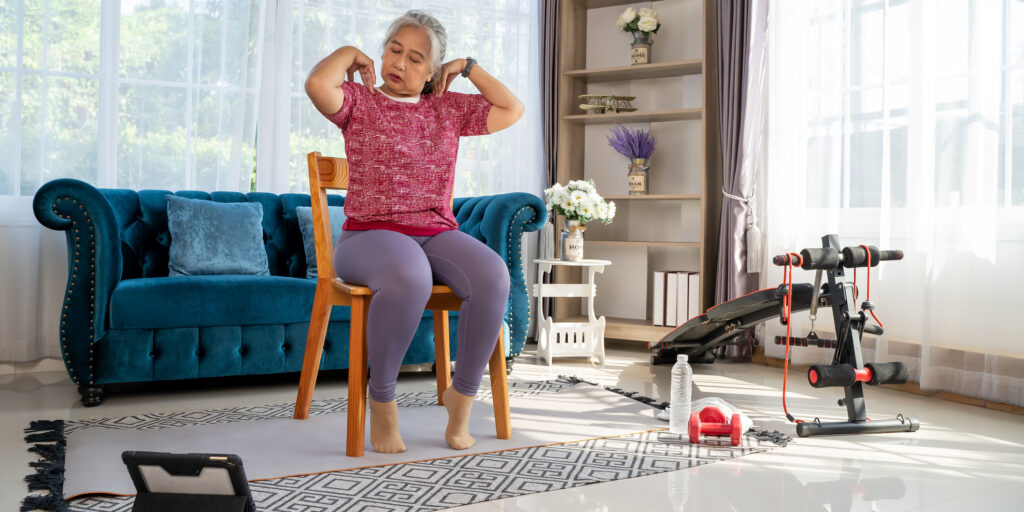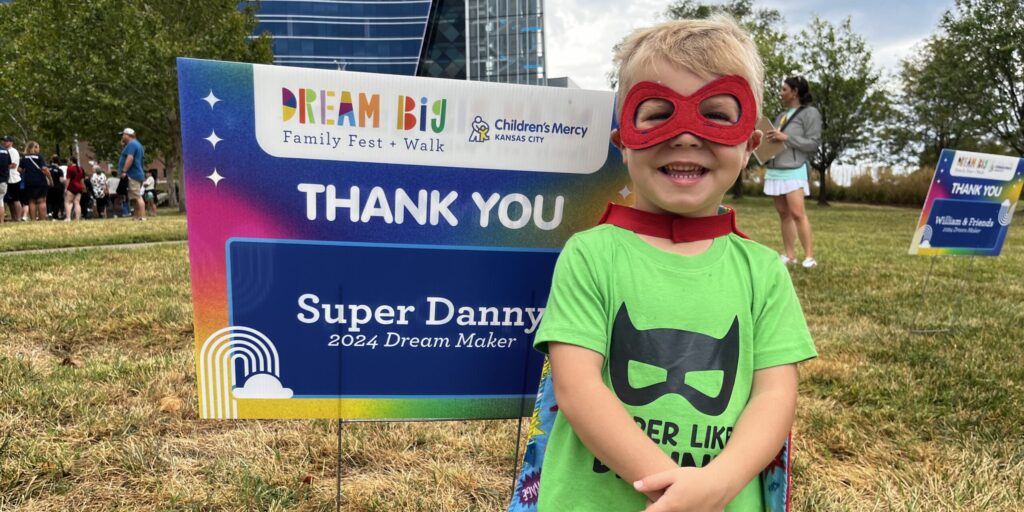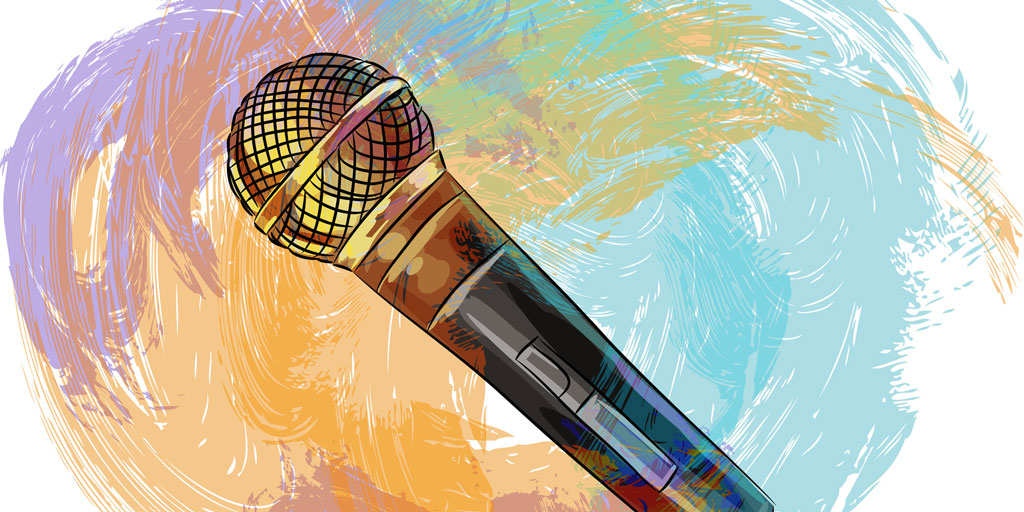
Change for the Better
By MDA Staff | Friday, August 14, 2020
Stephanie Erbacher is a passionate advocate on behalf of her 12-year-old daughter, Rylie, who has spinal muscular atrophy (SMA). Her path to advocacy started when Rylie couldn’t swing at a local playground in Cedar Rapids, Iowa.
“I pushed the parks department to put in an adaptive swing with back support and a solid harness in front,” Stephanie says. When park officials responded that an accessible playground might be built in more than a year, Stephanie pressed on, emailing the city manager and eventually talking to the superintendent of parks. “I let them know I had researched costs of the swing and was very motivated to work with the city to see how we could find a solution that would allow disabled children to have even just a single option to be included at the playground.”
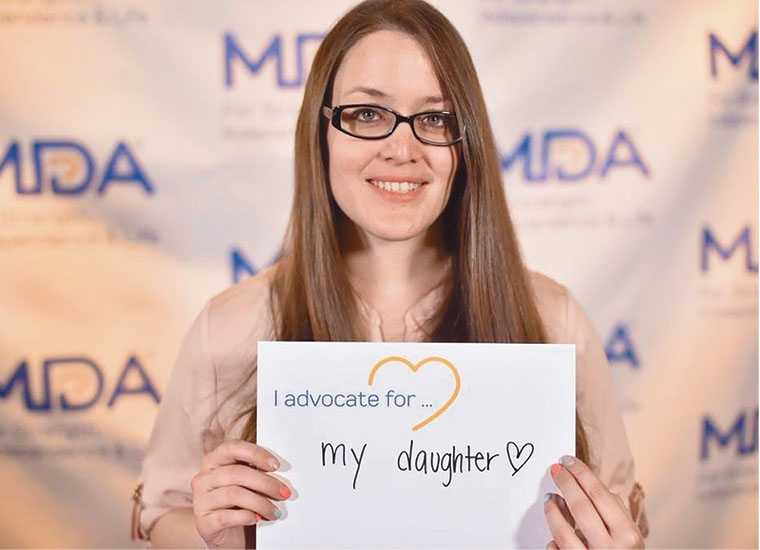
Stephanie Erbacher learned that advocacy is a way to improve the world for her daughter and all kids with disabilities in her community.
Within six weeks, the city installed an adaptive swing.
Stephanie learned that by using her voice, she could improve one small piece of the world not only for her daughter but for all kids with disabilities in her community. And that, in a nutshell, is advocacy: working toward a solution for a collective need.
Advocacy at MDA
When it comes to supporting the neuromuscular disease community, there are many worthy needs: raising awareness, changing rules, securing funding, supporting research.
This is where MDA’s Advocacy team comes in. This group works on legislation and guidelines at the federal level to ensure that actions at the state and local levels are backed by federal law, policies, and procedures.
“We work with the federal government, on the Congressional side and the regulatory side, on policies to improve the lives of people living with neuromuscular disease,” explains Brittany Johnson Hernandez, MDA’s senior director of Policy and Advocacy. “This is important because, without an organized operation that advocates can join, it is difficult to sort out the priorities and find effective ways to work.”
MDA welcomes individuals to join our advocacy efforts in ways that are meaningful to them. Our current advocacy direction focuses on three priorities: access to care and therapies from day one, accelerating therapy development, and empowerment and independence.
From the grassroots up
Becoming an advocate often starts with an experience or cause that is important to an individual. “All you need to start is the desire to do it,” Stephanie says. “A lot of advocacy work is just connecting with the right people and explaining why these things matter — and why they should matter.”
For example, one issue MDA advocates are involved in is updating standards for accessible air travel. “When we flew to Washington, DC, for a neuromuscular disease conference in 2019, my daughter’s power wheelchair was damaged on both legs of the flight,” Stephanie says.
Jason Morgan, who serves as chair of the Board of Commissioners for Washtenaw County, Mich., and lives with Becker muscular dystrophy (BMD), has heard many such stories. “We certainly should be able to bring wheelchairs onto an airplane, or at the very least be able to use the restroom,” Jason says. “There need to be clear standards on how to care for people with disabilities on an airplane. There are many instances of people being picked up out of their chairs in ways that aren’t safe. Plus, we need them to take better care of power wheelchairs, which currently aren’t handled well.”
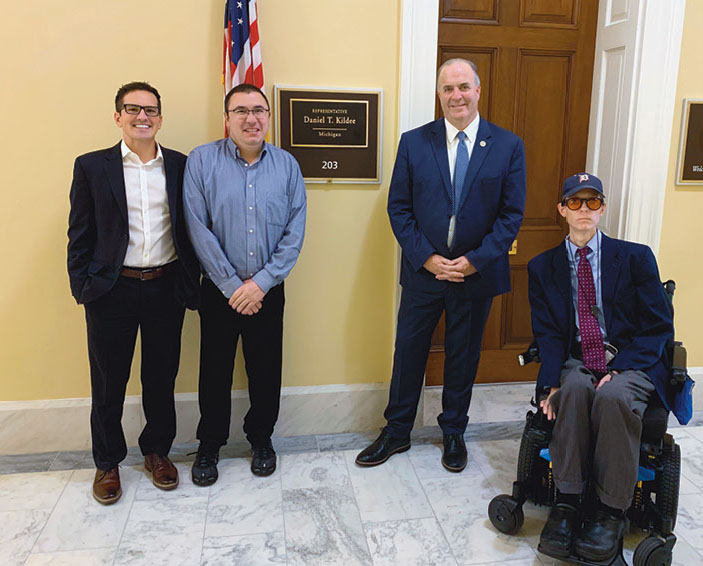
Jason Morgan (far left) and other advocates met with Congress members during the last MDA Advocacy Conference in Washington, DC.
To affect change in the large and heavily regulated airline industry, MDA has endorsed the Air Carrier Access Amendments Act, introduced by Sen. Tammy Baldwin of Wisconsin and Rep. James Langevin of Rhode Island. In addition, MDA has joined with other organizations to call on airlines, the Department of Transportation, and the Transportation Security Administration (TSA) to ensure that new policies and procedures during the COVID-19 pandemic accommodate passengers with disabilities.
“When we work with MDA directly through existing channels, asking for the same things in a coordinated way, we can have greater impact,” Jason says.
It’s important to remember that advocacy is not just about influencing major industries or moving national legislation. “Working at all levels is important,” Jason says. “At the local level there can be an impact with city, county, and state issues, such as accessibility of sidewalks, building construction, or savings funds for people with neuromuscular disease.”
A high tide floats all boats
Jason credits MDA Summer Camp with sparking his interest in advocacy. He first attended after he was diagnosed with BMD at age 13 and enjoyed going to Summer Camp for more than a decade, first as a camper, then as a counselor.
Jason has worked in government for years, serving on the staff of a US Congress member, as well as in the Michigan state government. He attended the past two MDA Advocacy Conferences in Washington, DC, where he met with key House of Representative members and their staff.
“The most important thing about being an advocate for people living with neuromuscular disease is to raise your voice: Talk to members of Congress, raise awareness on social media, fundraise for Summer Camp, and secure funding for a cure,” he says. “Direct advocacy is critical to making sure that these issues are a priority for lawmakers. We all have to work to make lawmakers aware of the issues.”
Even when the focus is on neuromuscular diseases other than BMD, Jason is committed to the cause. “Many of us feel that a high tide floats all boats. The best and most critical diseases need to be addressed,” he says. “Mine is not as severe as Duchenne muscular dystrophy, but the care for that should translate to BMD as well.”
Stephanie agrees that the benefits of advocacy can be far-reaching. “When you get a neuromuscular disease diagnosis, you feel this loss of control and hopelessness,” she says. “I know that advocating will help not just my daughter but other people, and move the needle in a positive direction. That’s a common theme; working toward change is therapeutic and uplifting.”
Myrna Traylor is a writer and editor for Quest.
3 Things You Can Do Now
- Join our advocacy network. Sign up for email updates and find opportunities to get involved at mda.org/advocacy.
- Contact your Congressional representative. Ask them to add provisions to upcoming healthcare or COVID-19-related legislation that help the neuromuscular disease community, such as ending surprise medical bills.
- Learn more about advocacy. The MDA Advocacy Institute is a series of webinars featuring experts discussing advocacy basics, as well as specific issues. They’re available to anyone at cqrcengage.com/mda/advocacyinstitute.
Follow Us on Twitter
Follow @MDA_Advocacy for the latest announcements and calls to action from MDA’s Advocacy team.
Making Our Voices Heard
Even during the COVID-19 pandemic, MDA continues to make sure lawmakers hear the voice of the neuromuscular disease community. Read more about this in MDA’s 2020 Advocacy Agenda Update.
TAGS: Accessible Air Travel, Advocacy Updates, COVID-19, Summer Camp
TYPE: Featured Article
Disclaimer: No content on this site should ever be used as a substitute for direct medical advice from your doctor or other qualified clinician.


